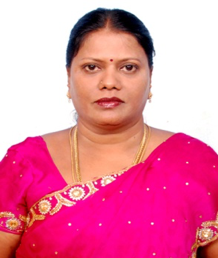Welcome to School of Nursing
About the School :
Nursing is a Challenging and unique profession, whose primary focus is caring the sick as well as managing the Preventive, Promotive and Rehabilitative Health Needs of the clients.
In the past, the nurse was simply a person trained to perform specific task. Later, nursing was recognized as a profession; demanded quality care.
Nursing is growing with current trends and technologies in health care system. Today’s nurse is also influenced by consumer’s Awareness, Rights of the Patients, Rising health care Costs, Health Promotion.
Scientific advancements in healthcare system and research made today’s nursing to focus on evidence-based nursing practice. Patient care is the main focus of this modern world and Nurses play a vital role in health care system. The turbulent swirl of change within this country’s health care industry has provided challenges and opportunities for Nursing. Competent nurses are in demand all over the world.
Sree Balaji college of Nursing started with B.Sc. Nursing course in the year 1992 with 4 years of Duration, In the year 2005 started M.Sc. Nursing programme with 10 intake and seat was increased to 25 in the year 2008 and P.B.Sc.Nursing in the year 2012 with 15 intake and Nurse Practitioner course in Critical care (NPCC) in the year 2019 with 10 intakes .All the Nursing courses are affiliated to Indian Nursing council, The Tamil Nādu nurses and Midwives council also Affiliated to Bharath Institute of Higher education and Research. As a Miles stone in our profession, we are started the Doctoral degree in the year 2013.
Hostel is the Safe Nest for students who are away from home.Hostel is situated out of the college campus, at a walkable distance which give the fresh homely feel; with good infrastructure and basic amenities like, adequately furnished rooms, 24 hours Water Facility, Generator back up for electricity, spacious dining hall, provision of Sick room in case any student get sick. Round the clock Residential Warden & Security service which makes .student feel safe and comfortable. During the stay in hostel, the student will strictly adhere to the hostel rules and regulations to maintain the discipline in the hostel.
Our students are privileged to develop the skills of nursing care at our own hospital which is Multispecialty all the facility . We also have a tie-up with various specialty hospitals for Clinical Postings of the students. Our students will be given Community Nursing Field experience during which they will be taken to the realistic situation where people live and students will learn skills of assessing preventing various health problems.
The students will also participate in celebrating the international health days and programs. We aim at holistic development of the students; for which we have Student Nurses’ Association to conduct and participate various literary and cultural competitions.
The students will be encouraged to participate in intercollegiate as well as state and National Level Competitions. Regular awareness camps were conducted to motivate the students in extension activities.
We are proud to say our college as well as Hostel is Ragging free.
We give conduct counselling sessions for the students who are having Psychological & Physical health issues. We also help the students in career guidance.
Apart from giving quality education, students are exposed to various career options around the globe. Students are updated with latest career trends, standards and possibilities to make them adopt to global standard.
I appeal to the parents to believe in us and admit your children in our college to witness success in their life.

